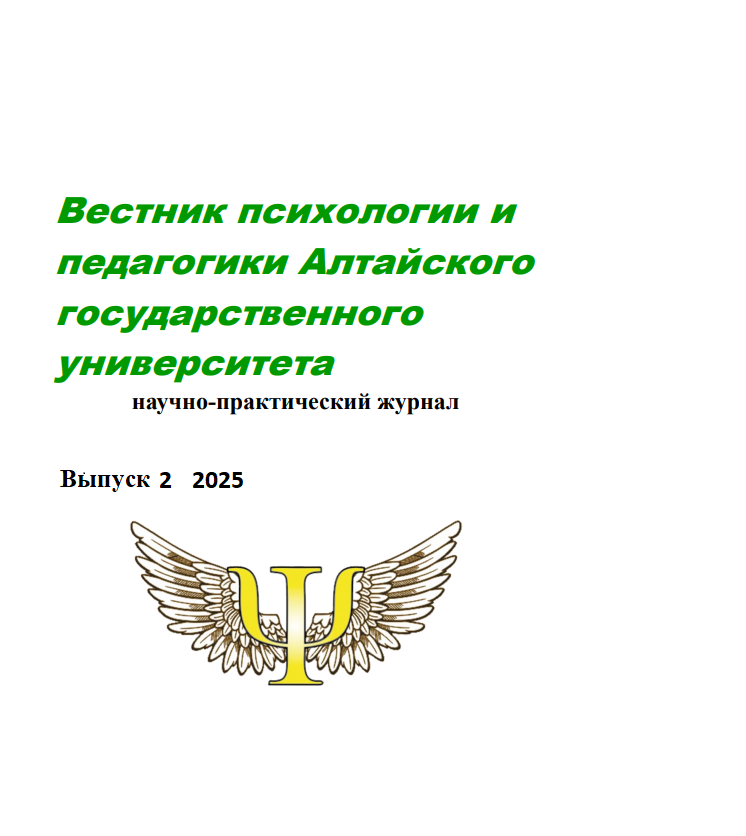IMPLEMENTATION OF THE EDUCATIONAL FUNCTION IN THE DISTANCE EDUCATION SYSTEM
УДК 371.4
Abstract
draw the reader's attention to the fact that currently the possibilities of distance education are not fully used in the process of implementing educational tasks, and the proposed forms of organization of educational work are not always attractive to consumers. The purpose of the study was to study the problem related to the implementation of educational tasks by means of distance education in theory and pedagogical practice, to identify some possible forms of work with children that allow them to implement educational tasks and at the same time are in demand and promising for consumers of pedagogical services represented by students and their parents. The article describes the methodology and presents the results of a study to confirm the stated problem, examines some possible options for organizing educational work with children in school by means of distance education.
Downloads
References
Дементьева Ю.В. Основы работы с электронными образовательными ресурсами : учебное пособие. Саратов : Вузовское образование, 2017. 80 c. URL: https://www.iprbookshop.ru/62066.html
Демина Е.С. Реализация требований к качеству образования в Российской педагогической системе // Горизонты образования. Материалы I Международной научно-практической конференции. Омск, 2020. С. 254–257.
Зайченко О.М., Аверкин В.Н., Афанасьев К.В. Дистанционное обучение детей. Опыт. Перспективы. Рекомендации. Великий Новгород : Новгородский институт развития образования, 2013. 246 с.
Закалюжная Н.В. Дистанционная работа: эволюция, современное состояние, перспективы : монография. Москва : Русайнс, 2023. 110 с. URL: https://book.ru/book/948767
Карманова Е.В. Дистанционное образование в условиях компетентностного подхода : монография. Москва : ФЛИНТА, 2017. 159 с. URL: https://e.lanbook.com/book/104908
Колбышева С.И. Организация учебной деятельности слушателей дистанционной формы обучения. Минск РИПО, 2016. 41 с. URL:http://ibooks.ru/ reading.php? short= 1&productid=354278.
Лю Цзея. Анализ понятий «дистанционное образование» и «дистанционное обучение». История возникновения и развития дистанционного образования в мире // Молодой ученый. 2020. № 49 (339). С. 402-406. URL: https://moluch.ru/archive/339/76003/
Морозов П.Е. Правовое регулирование дистанционного обучения: современные проблемы и пути их решения : Учебно-методическое пособие. Москва : Проспект, 2021. 89 с. URL: https://book.ru/book/946129
Никуличева Н.В. Дистанционное обучение: от внедрения до реализации : учебник. Москва : КноРус, 2024. 243 с. URL: https://book.ru/book/950523
Хапалажева Э.А., Чертыковцева Т.В. Дистанционное обучение: взгляд учителя // Педагогическое мастерство : материалы LI Междунар. науч. конф. (г. Казань, май 2023 г.). Казань : Молодой ученый, 2023. С. 16–20. URL: https://moluch.ru/conf/ped/archive/493/18043/
References:
Dement'eva Ju.V. Osnovy raboty s jelektronnymi obrazovatel'nymi resursami : uchebnoe posobie. Saratov : Vuzovskoe obrazovanie, 2017. 80 p. URL: https://www.iprbookshop.ru/62066.html
Demina E.S. Realizacija trebovanij k kachestvu obrazovanija v Rossijskoj pedagogicheskoj sisteme. Gorizonty obrazovanija. Materialy I Mezhdunarodnoj nauchno-prakticheskoj konferencii. Omsk, 2020. P. 254–257.
Zajchenko O.M., Averkin V.N., Afanas'ev K.V. Distancionnoe obuchenie detej. Opyt. Perspektivy. Rekomendacii. Velikij Novgorod : Novgorodskij institut razvitija obrazovanija, 2013. 246 p.
Zakaljuzhnaja N.V. Distancionnaja rabota: jevoljucija, sovremennoe sostojanie, perspektivy : monografija. Moskva : Rusajns, 2023. 110 p. URL: https://book.ru/book/948767
Karmanova E.V. Distancionnoe obrazovanie v uslovijah kompetentnostnogo podhoda : monografija. Moskva : FLINTA, 2017. 159 p. URL: https://e.lanbook.com/book/104908
Kolbysheva S.I. Organizacija uchebnoj dejatel'nosti slushatelej distancionnoj formy obuchenija. Minsk RIPO, 2016. 41 p. URL:http://ibooks.ru/ reading.php? short= 1&productid=354278.
Lju Czeja. Analiz ponjatij «distancionnoe obrazovanie» i «distancionnoe obuchenie». Istorija vozniknovenija i razvitija distancionnogo obrazovanija v mire // Molodoj uchenyj. 2020. No 49 (339). P. 402–406. URL: https://moluch.ru/archive/339/76003/
Morozov P.E. Pravovoe regulirovanie distancionnogo obuchenija: sovremennye problemy i puti ih reshenija : Uchebno-metodicheskoe posobie. Moskva : Prospekt, 2021. 89 p. URL: https://book.ru/book/946129
Nikulicheva N.V. Distancionnoe obuchenie: ot vnedrenija do realizacii : uchebnik. Moskva : KnoRus, 2024. 243 p. URL: https://book.ru/book/950523
Hapalazheva Je.A., Chertykovceva T.V. Distancionnoe obuchenie: vzgljad uchitelja. Pedagogicheskoe masterstvo : materialy LI Mezhdunar. nauch. konf. (g. Kazan', maj 2023 g.). Kazan' : Molodoj uchenyj, 2023. P. 16–20. URL: https://moluch.ru/conf/ped/archive/493/18043/
Bulletin of Psychology and Pedagogy of Altai State University is a golden publisher, as we allow self-archiving, but most importantly we are fully transparent about your rights.
Authors may present and discuss their findings ahead of publication: at scientific conferences, on preprint servers, in public databases, and in blogs, wikis, tweets, and other informal communication channels.
Bulletin of Psychology and Pedagogy of Altai State University allows authors to deposit manuscripts (currently under review or those for intended submission) in non-commercial, pre-print servers such as ArXiv.
Authors who publish with this journal agree to the following terms:
- Authors retain copyright and grant the journal right of first publication with the work simultaneously licensed under a Creative Commons Attribution License that allows others to share the work with an acknowledgement of the work's authorship and initial publication in this journal.
- Authors are able to enter into separate, additional contractual arrangements for the non-exclusive distribution of the journal's published version of the work (e.g., post it to an institutional repository or publish it in a book), with an acknowledgement of its initial publication in this journal.
- Authors are permitted and encouraged to post their work online (e.g., in institutional repositories or on their website) prior to and during the submission process, as it can lead to productive exchanges, as well as earlier and greater citation of published work (See The Effect of Open Access).







